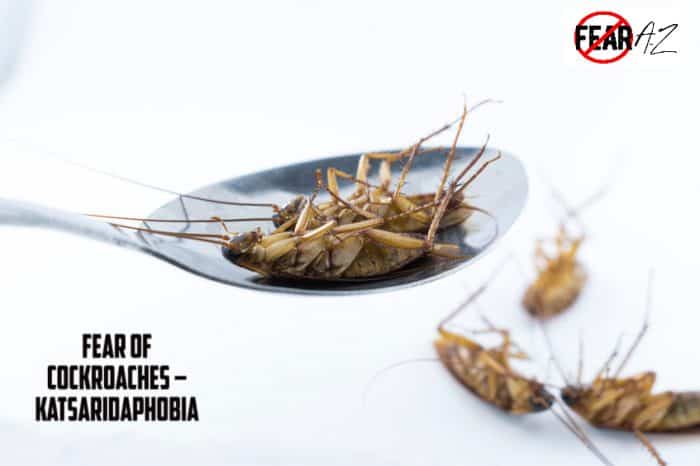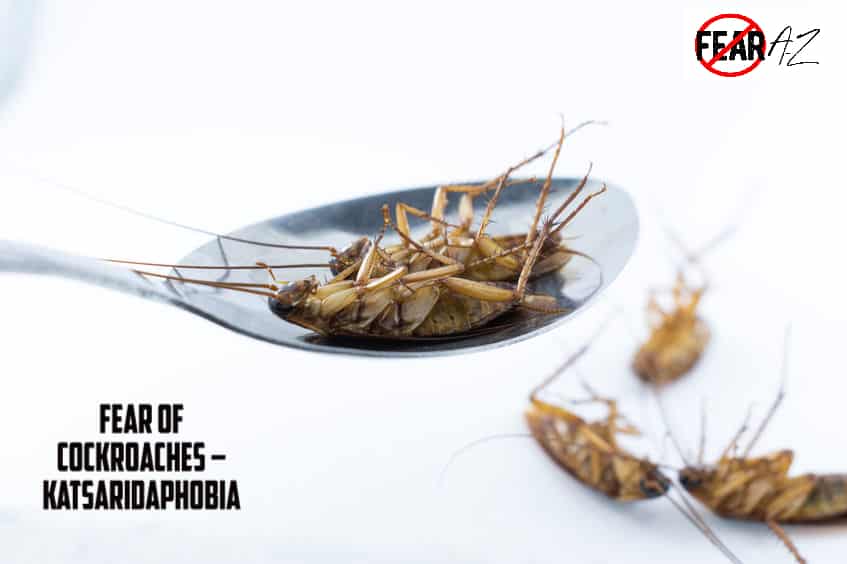Share This Article
What Is Katsaridaphobia?
Cockroaches. Most people don’t like these critters anywhere near them.
While most dislike cockroaches because of their looks or tendency to be in dirty spaces, some people have a full-blown phobia of them.
What is cockroach phobia called? Katsaridaphobia.
Like other phobias or extreme fears of something, people who have katsaridaphobia can suffer some serious symptoms of this condition. Some individuals with a cockroach phobia can have panic attacks just by thinking of cockroaches. If you feel you or someone you know has a phobia of cockroaches, read on to learn how to manage this phobia in a safe way.
What Are the Symptoms of Katsaridaphobia?
Katsaridaphobia has been around a long time. Our ancestors were taught to have a patellar reflex—otherwise known as a ‘knee-jerk reaction’—to critters like cockroaches which invaded their dwellings, as they often harbored disease. These days, most people still have this knee-jerk reaction when seeing cockroaches, but those who have a cockroach phobia can suffer from much more.

Physical symptoms that may occur when seeing a cockroach can include excessive sweating, hyperventilation (or breathing too fast), tightness in the chest, racing heart, dizziness, weakness, nausea, vomiting, or a tingling sensation in hands or arms. These symptoms themselves are common signs of a panic attack, but may occur independently, depending on each person. Some people even have one or more of these symptoms when just thinking of cockroaches, though these tend to be rarer cases.
There aren’t just physical side effects to having a phobia of cockroaches. Many have psychological side effects as well. Possible side effects include heightened anxiety, extremely intense emotional reactions and taking drastic measures to keep a home cockroach-free. Some individuals may spend hours scrubbing their house, spraying floors and walls with anti-cockroach spray, and checking every corner for a cockroach. These actions can limit a person’s ability to live a normal life as it may interfere with their work or social interactions.
How Can I Overcome Katsaridaphobia?
Fortunately, there are many ways to treat kataridaphobia. There are two common routes to follow:
Self-help
Self-treatment for katsaridaphobia is similar to treatment for all other phobias, with plenty of options available. First and foremost, katsaridaphobia is rooted in both fear and anxiety, common emotions that every person feels at different points throughout their lives.
The case that everyone feels these emotions is comforting just knowing you are not alone and that everyone deals with it in their own way.
The most common way to deal with anxiety is to ensure that you feel more positive emotions than negative ones. Think about what makes you feel good. Is it spending time in nature? Getting exercise? Being around loved ones? Figure out what gives you the most positive feelings, including feeling joy, calm, and amusement, and make sure you do what makes you feel good as much as you can every day! If you get stuck in a cycle of negative thinking, your anxiety, stress, and fear will continue to build up and cause harm in your life.
Getting Professional Help
If you feel that you would prefer professional help instead of self-help, you also have plenty of options available. Fortunately, there are many ways to get professional help in the form of therapy and, in extreme cases, medication. As mentioned above, katsaridaphobia is born out of anxiety and fear, so receiving professional help for these two emotions will help to control your katsaridaphobia.
There are different kinds of therapy available. Talk therapy is very common and includes speaking with a therapist about your katsaridaphobia. The therapist will help you deal with your anxiety and fear by helping you understand where these emotions come from. Our anxiety and fears may often start from a past event or even may be genetic, coming from our family genes.
Exposure therapy is another popular option for those with katsaridaphobia. This kind of treatment involves being exposed to your fear and findings ways to cope with it, with the long-term goal of having less of a reaction when seeing your fear. In the case of katsaridaphobia, this could mean having a therapist show you pictures or videos of a cockroach, or even bring some cockroaches into a session with you. Initially, your reaction may be severe, but by facing the fear head-on and talking through it with your therapist, you will find yourself less and less reactive to cockroaches.
Some medications may help lessen the emotional and physical pain you may have with cockroaches. Anti-anxiety medication is great for reducing the possibility of panic attacks, which may come when seeing or thinking about cockroaches. Another option is anti-depressants, which can help with depression you may feel in not being able to control your phobia.
How to Avoid Katsaridaphobia
Now you know the answer to “what is cockroach phobia called?” The key step to avoiding katsaridaphobia is to ensure at least a modest level of cleanliness in your household. Cockroaches are attracted to leftover food and dirty spaces. Make sure your house is clean, and that all food that is not eaten is either properly stored or thrown away.
Most people fear cockroaches on some level, so don’t feel like you are alone! There is lots of help available, from self-help to professional help. You can learn to keep the fear of these creepy critters under control!




